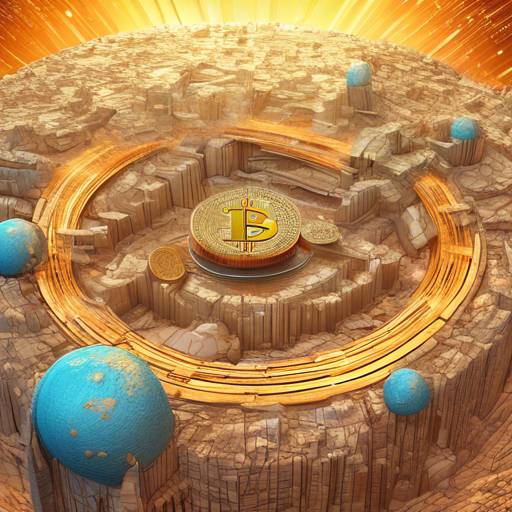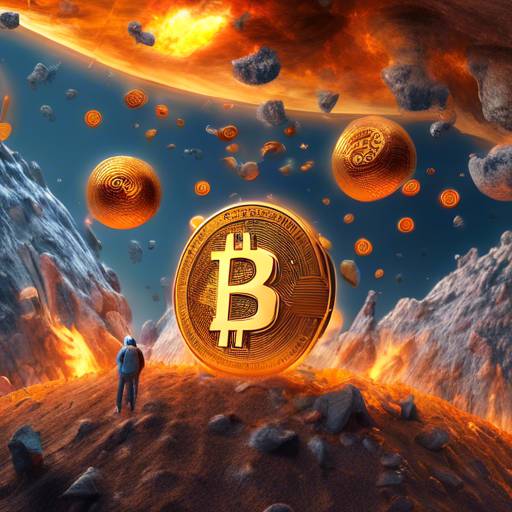Bitcoin’s Layer-2 Solutions: Scaling the World’s Most Valuable Blockchain
Bitcoin, the world’s most valuable blockchain, has long been criticized for its lack of scalability and limited functionality. However, with the emergence of Layer-2 scaling solutions, this narrative is changing rapidly. These auxiliary networks built on top of Bitcoin are providing much-needed scalability and bringing new use cases to the network. In this article, we will explore why Bitcoin needs Layer-2 solutions, the growing landscape of Layer-2 projects, and how they are transforming the Bitcoin ecosystem.
Why Bitcoin Needs Layer-2
Ethereum has been the go-to blockchain for decentralized finance (DeFi) and non-fungible tokens (NFTs) due to its smart contract functionality. Bitcoin, on the other hand, lacked support for these features until Layer-2 solutions came into play. Here’s why Bitcoin needs Layer-2:
- Scalability: The main Bitcoin network can only process seven transactions per second compared to Visa’s 24,000. Layer-2 solutions relieve the burden on the main chain and enable a higher volume of transactions.
- Smart Contract Functionality: Layer-2 solutions bring smart contract capabilities to Bitcoin, allowing it to compete with Ethereum in the DeFi space.
- Permissionless Financial Primitives: Bitcoin-based DeFi opens up opportunities for leveraging trading and collateralized lending on a blockchain known for its store of value.
Bitcoin’s Growing Layer-2 Landscape
The rise of Layer-2 solutions for Bitcoin is evident in the growing number of projects entering the space. Here are some notable examples:
Earth Wallet’s Social Network
Earth Wallet, a self-custody wallet, has developed its own Bitcoin Layer-2 solution called Social Network. This staking protocol aims to make Bitcoin more user-friendly, energy-efficient, and positive for the environment. It achieves this by moving media off the main Bitcoin network and into the Nostr protocol, while allowing users to securely deposit BTC in liquidity pools for staked bitcoin (STBTC) and Social Network (EARTH) rewards.
Stacks Protocol
Stacks Protocol is an open-source protocol that enables smart contracts and dApps to use Bitcoin as a base layer. It has gained significant traction in recent months, with its native token outperforming BTC and posting 400% gains since October. Several dApps, including NFT platform Gamma and DeFi protocol ALEX, have already migrated to Stacks.
Lightning Network
The Lightning Network is one of the earliest Layer-2 solutions for Bitcoin. Introduced in 2016, it aims to boost scalability by settling bitcoin transactions off-chain. The Lightning Network has seen exponential growth in the last two years, with routed transactions increasing by over 1200%. It enables low fees and near-instantaneous confirmations, making micro-transactions on Bitcoin fast and affordable.
The Future of Bitcoin’s Layer-2 Ecosystem
The rapid growth of Layer-2 solutions for Bitcoin indicates a promising future for the network. With over $2 billion locked in Bitcoin-based DeFi protocols and a thriving builder culture within the Bitcoin community, Layer-2 solutions are gaining momentum. Here’s what this means for bitcoiners:
- Competition with Ethereum: Bitcoin is positioning itself as a viable competitor to Ethereum in the DeFi and NFT space.
- Enhanced Scalability: Layer-2 solutions relieve the scalability limitations of the main Bitcoin network, allowing for a higher volume of transactions.
- Expanded Use Cases: Bitcoin-based DeFi opens up new opportunities for leveraging trading and collateralized lending.
🔥 Hot Take: Bitcoin’s Layer-2 Revolution is Here to Stay
The emergence of Layer-2 solutions has transformed Bitcoin’s scalability and functionality. With projects like Earth Wallet’s Social Network, Stacks Protocol, and the Lightning Network, Bitcoin is no longer limited to being just a store of value. It can now compete with Ethereum in the world of DeFi and NFTs. As the fourth halving approaches, the growth of Bitcoin’s Layer-2 ecosystem shows no signs of slowing down. Bitcoiners can look forward to a future where their beloved network offers a wide range of use cases and competes head-to-head with Ethereum.





 By
By
 By
By
 By
By
 By
By
 By
By
 By
By